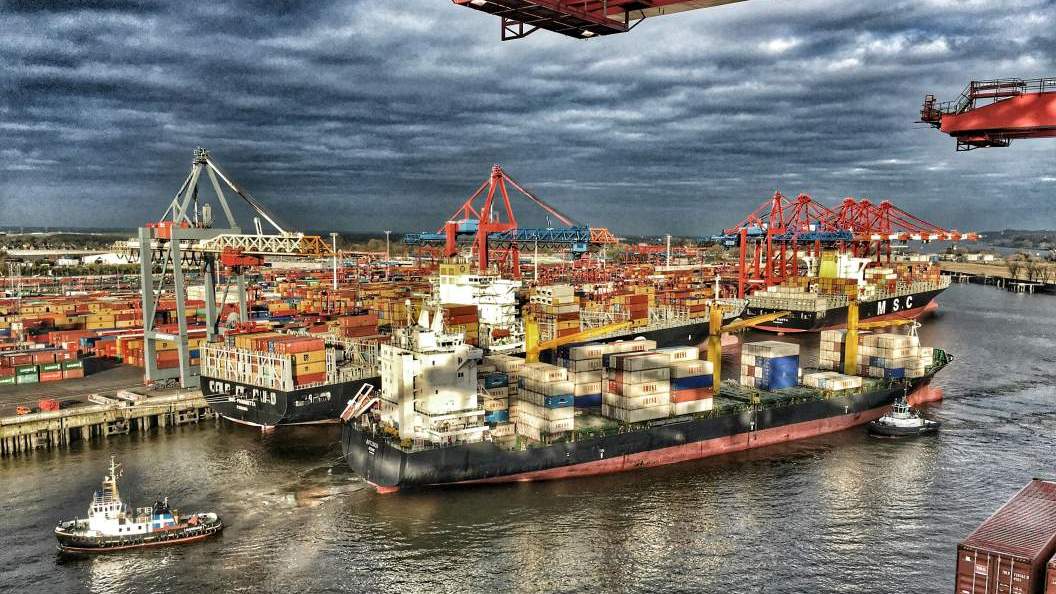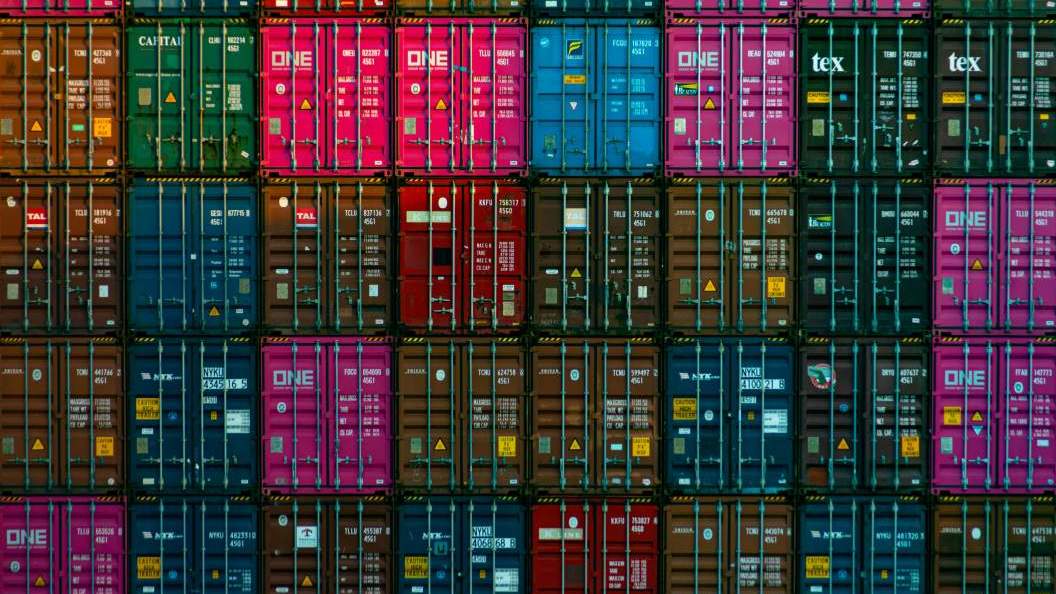Table of contents
- What is Marine Insurance and Why is it Important?
- Who Needs Marine Cargo Insurance?
- Types of Marine Insurance
- When Buying Marine Cargo Insurance...
- Accidental Damages
- Research Marine Cargo Insurance Providers
- Insurance and Incoterms
- Why is Freight Insurance / Cargo Insurance Important?
- Terms of Marine Cargo Insurance
- What Documents Are Needed to Support a Claim?
What is Marine Insurance and Why is it Important?
Trade is an integral part of any economy. A business involved in the international movement of goods needs insurance protection against the associated risks with the transportation of goods or shipments from one destination to another.
Broadly, this is known as marine insurance or cargo insurance.
These insurance products are available to buyers through a variety of suppliers from specialist insurance firms to freight forwarders. For many businesses, stock or equipment may have to be stored or transported between locations – sometimes by other companies. In these situations, the insurances can be arranged to ensure goods are protected during road, rail, sea or air transportation.
Who Needs Marine Cargo Insurance?
Any business that imports or exports goods or transports goods in the UK or overseas could benefit from the peace of mind that these insurance policies provide. These can include international buyers and sellers, contractors, e-tailers, import/export merchants to anyone with the requirement to the transportation of goods from one country to another.
Types of Marine Insurance
Cargo insurance is a sub section of marine insurance. The protection it provides is against the loss or theft and damage caused to cargo during transit through any road, rail, sea or airport networks. Cargo insurance covers all types of possible damage or loss, from teu and feu containers falling to ships and containers catching fire. It guarantees the value of the goods being transported and is designed to protect against any losses that might follow.
- general cargo and goods in transit
- project cargo (including delay in start-up)
- logistics and security
- packaging
- temperature-sensitive and theft-attractive cargo
- warehouse inspections
- international insurance programs
- piracy
- difference in conditions and difference in limits (DIC/DIL)
- freight liability
- cargo consequential loss
When Buying Marine Cargo Insurance...
Before purchasing cargo insurance, it is important to understand the practicalities of the cargo that you will be shipping, especially relating to the packaging. The packaging is what will protect your cargo during transit. It is important to think about whether the packaging will provide sufficient protection on the journey.
It’s worth marking or labelling your packages so that they can be easily identified. If packages contain branded items e.g., clothing, the brand should not be displayed on the packaging as this draws unnecessary attention and poses further risk to your cargo.
Previously, we mentioned freight insurance in the list of additional protection that covers goods. The biggest point to note here is freight insurance protects the freight forwarder and cargo insurance protects the customer.
If you’re a buyer or seller that wants to ship goods to different countries freight insurance will not cover you.
Accidental Damages
If a ship carrying cargo experiences a fire or accidental damage or expenditure, the carrier can declare general average. When this happens all parties with cargo on the ship may become liable to pay a share of the cost of the total expense. Should this unfortunate event happen when your cargo is onboard the vessel, there is high probability your cargo may not be released until the general average deposit and salvage security have been calculated, which can be a long, costly and arduous task.
Research Marine Cargo Insurance Providers
- Make sure they offer flexible and bespoke policies based on your needs as well as low or no deductibles. Put simply, deductibles are out-of-pocket costs that you must pay before your insurance coverage kicks in and pays out your claim(s). Deductibles help insurance companies share costs with policyholders when they make claims.
- All risk coverage means that all standard commodities are then covered against any financial exposure, physical loss, and stolen or damaged goods in transit
- Make sure that the insurance team is qualified, experienced, and well versed in what they do
Insurance and Incoterms
Insurance and incoterms are critically important. Incoterms determine which of the two parties is responsible and liable for the possible risk during transit and the insurance payment, while they also determine when the risk passes over from one party to the other.
The incoterms that are the most commonly applied to international sales agreements:
Incoterms must be clearly stated in any international sales agreement so that both parties know who is responsible for what and when.
- EXW (Ex Works) – is defined as the buyer being the responsible party for the risk and insurance costs from the point of export customs clearance through to the receipt of goods.
- FOB (Free On Board) – dictates that the seller is the one responsible for all risk and costs until the goods being shipped have been loaded on to the cargo vessel. Once this has happened the risk and cost then pass over to the buyer.
- CIF (Cost, Insurance, and Freight) – here the seller is responsible for risks up until the goods have been loaded on to the cargo vessel and also pays the associated insurance costs until the goods reach the port of discharge. Upon arrival at the port of discharge the buyer then shares the cost and assumes sole responsibility for the risk and cost going forward.
Why is Freight Insurance / Cargo Insurance Important?
Freight insurance specifically covers the forwarder’s liability for any damage or loss incurred to the customer’s goods whilst in transit, under their care, which must be caused due to the negligence of the freight forwarder for the claim to have any traction. However, even if your claim is successful the money that you will be compensated for is limited.
Freight insurance cover is all calculated by the total weight of the goods being shipped. It is also calculated as a percentage of the fees of the freight forwarder, which are payable by them and then passed over to the customer as a cost that will already be included in their quote.
Cargo Insurance is a necessity if you wish to cover the full value of your goods being shipped. As mentioned earlier the amount responsibility placed upon either the buyer or the seller is determined by the applicable incoterm to the international sales agreement.
One of the most common sea freight insurances is known as MCT (marine cargo transit) Insurance. This is cargo insurance for goods only being shipped by sea, and protects your cargo against any maritime risks.
Commonly cargo insurance premiums are calculated by the insurer using a varied range of criteria.
Nature of the freight being shipped e.g. is the item hazardous
FCL or LCL
Dimensions and total weight of the freight being shipped
What country of origin is the cargo being shipped from
What country is the destination for the cargo
The route being taken from port to port
Length of time at sea
Terms of Marine Cargo Insurance
The terms of your cargo insurance will be provided in the policy of your provider, which you should read carefully, and the claims procedure will be presented in the documentation of your insurance policy agreement. We would highly recommend you read any and all associated risks when taking out cargo insurance policies.
For any cargo claim to be valid, should you need to make one, must be made within the specified time by the insurance company. For goods that have been visibly damaged shipping via sea, claims for damage will need to be made upon the receipt of the damaged goods, whilst any hidden damage that has occurred must be claimed within three working days of the discharge of the goods.
Relating to the loss of goods whilst in transit, any claim is made by notification to the company if you have suffered total loss, however for partial loss any claim can be made retrospectively.
Usually, insurance claims often take several weeks as there is the process of loss quantification and loss-adjuster reports, the customer must also sign a discharge receipt letter. Then compensation can be paid to the claimant.
Any claim through cargo insurance will usually mean you fully compensated for the goods in question, however the exact amount is dependent on the value of your goods and the shipping costs in the premium.
A reputable freight forwarder for forwarding agent will be able to arrange a comprehensive cargo policy on your behalf by liaising with a select group of insurance providers. The cost of this service is usually included in their overall quote. If any damage or loss to occurred to your goods your freight forwarder will manage the claim process and subsequent correspondence on your behalf, until the settlement is completed.
What Documents Are Needed to Support a Claim?
- Original policy/certificate
- Invoices and packing lists
- Original bill of lading or other transport document
- Survey report or other evidence of loss or damage
- Landing account/weight notes at destination/stowage brokers record
- Any correspondence with the carrier or parties involved
Where possible, we would advise using a reputable freight forwarder you know and trust. If you decide to arrange cargo insurance by yourself, you will be reliable to handle claims on your own.
If you are you looking for a partnership that focuses on quality rather than quantity? Talk to someone direct.
Contact us to start the conversation.


